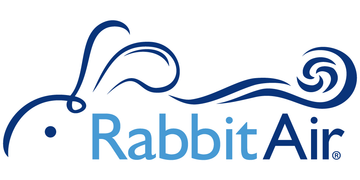
Using an air purifier in a nursery can significantly enhance air quality, providing a healthier environment for infants. While they are generally safe and beneficial, it is essential to choose the right model that does not emit ozone and uses effective filtration methods.
Let’s explore the types of air purifiers, their benefits, and how a baby's respiratory system differs from an adult's.
What is an Air Purifier?
An air purifier is a device designed to improve indoor air quality by removing airborne pollutants and contaminants. It typically consists of one or more filters and a fan that circulates air through these filters. As air passes through the filters, particles such as dust, pollen, smoke, and pet dander are captured, resulting in cleaner air being released back into the environment.
The most effective air purifiers use High-Efficiency Particulate Air (HEPA) filters, which are particularly adept at trapping very small particles, including allergens and some bacteria. Some models may also include additional features like activated carbon filters, which help absorb odors and volatile organic compounds (VOCs), and UV light, which can kill certain microorganisms. However, the effectiveness of these additional technologies can vary, and some may even produce ozone, a harmful gas that can irritate the lungs.
Air purifiers are especially beneficial for individuals with allergies, asthma, or other respiratory issues, as they can significantly reduce the concentration of allergens and irritants in the air.
Benefits of Using an Air Purifier in a Nursery
Using an air purifier in a nursery offers several significant advantages that contribute to a more comfortable and safe environment for infants.
One of the primary benefits is reducing allergens in the air. Air purifiers effectively filter out common allergens such as dust, pollen, and pet dander, which can be particularly irritating to a baby's sensitive respiratory system. This is crucial as infants are more susceptible to respiratory irritants due to their developing lungs.
Additionally, air purifiers can help maintain a pleasant atmosphere by neutralizing odors.
This is especially beneficial in a nursery where smells from diapers, food, or other sources can accumulate. By keeping the air fresh, air purifiers contribute to a more inviting and comfortable space for both the baby and caregivers.
The operation of many modern air purifiers is also designed to be quiet, which can help create a soothing environment conducive to sleep. The gentle hum of an air purifier can act as white noise, potentially aiding in calming babies and promoting better sleep quality.
Furthermore, some air purifiers can control humidity levels, which is vital for preventing the growth of mold and maintaining optimal air quality. Proper humidity levels can enhance comfort and reduce the likelihood of respiratory issues associated with overly dry or humid conditions.
Lastly, the presence of an air purifier can provide peace of mind for parents. Knowing that the air in the nursery is being actively cleaned and filtered helps alleviate concerns about indoor air quality, allowing parents to focus more on their baby's well-being and development.

How Babies' Respiratory Systems Differ from Adults
Babies’ respiratory systems are notably different from those of adults. Understanding these differences highlights why maintaining good air quality is especially crucial for infants.
- Smaller Airways: Babies have smaller airways and lungs compared to adults. This makes them more susceptible to respiratory issues caused by airborne pollutants and allergens. Particles that may not significantly affect adults can have a more pronounced impact on a baby's delicate respiratory system.
- Faster Breathing Rate: Infants breathe faster than adults, which means they inhale more air, and therefore more airborne particles, relative to their body size. This increased breathing rate can lead to a higher exposure to pollutants if the air quality is poor.
- Immature Immune System: A baby's immune system is still developing, making them more vulnerable to infections and illnesses. Cleaner air can help reduce the load on their immune system by minimizing exposure to harmful particles and microorganisms.
- Increased Sensitivity: Babies are generally more sensitive to environmental changes, including air quality. Poor air quality can exacerbate conditions like allergies which can affect overall well-being.
Additional Measures for Enhancing Air Quality in a Nursery
While air purifiers play a crucial role in maintaining clean air, they're just one piece of the puzzle when it comes to creating a healthy environment for your little one. Natural ventilation is a simple yet effective strategy that shouldn't be overlooked.
By opening windows and using fans strategically, you can promote airflow and help reduce indoor pollutant concentrations. This approach can be particularly beneficial when used along with an air purifier, creating a dynamic system that keeps the air fresh and circulating.
While air purifiers play a crucial role in removing pollutants, humidifiers can also help maintain optimal air quality in your nursery. Humidifiers add moisture to the air, which can be particularly beneficial in dry climates or during winter months when indoor heating can significantly reduce air humidity.
Regular cleaning is another cornerstone of maintaining excellent air quality.
Frequent dusting and cleaning help remove accumulated allergens and pollutants that settle on surfaces over time. Paying special attention to bedding, toys, and other frequently used items can significantly reduce the number of airborne particles in the nursery.
Lastly, the materials you choose for the nursery can have a substantial impact on air quality.
Opting for hypoallergenic bedding and furniture materials can reduce the risk of allergens and irritants in the air. These materials are less likely to trigger sensitivities, creating a more comfortable and healthier environment for your baby.
By combining these strategies with the use of a carefully selected air purifier, you can create a comprehensive approach to air quality management in your nursery, ensuring your little one breathes the cleanest air possible.




